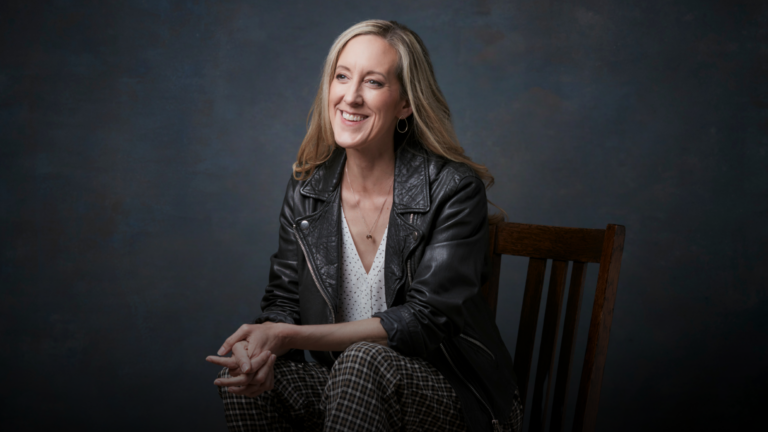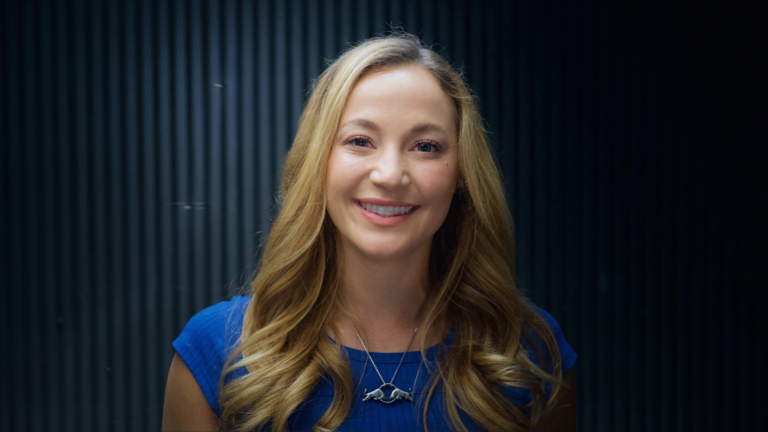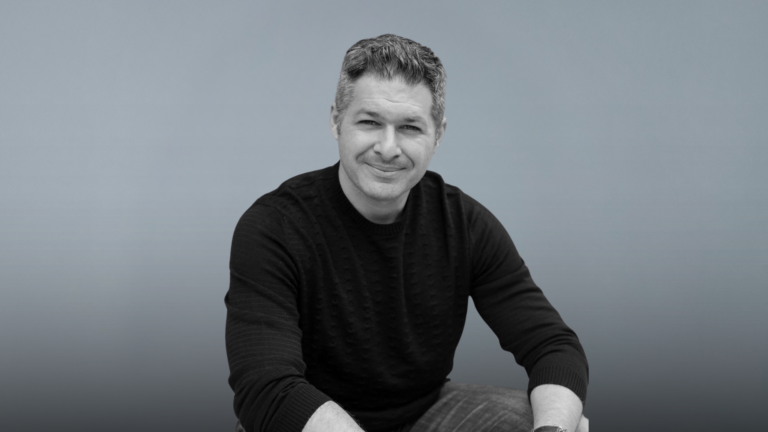This week’s conversation is with Ramit Sethi, an entrepreneur, personal finance expert, and author of the New York Times bestseller, I Will Teach You to Be Rich.
Ramit’s non-traditional messaging around money and his practical wisdom for generating wealth are now the subject of a new Netflix series entitled How To Get Rich. In all of his work, Ramit’s savvy, actionable, and nonjudgmental insights empower all types of people to not succumb to the tragedy of living a smaller life than they have to.
The son of immigrant parents, from a middle-class upbringing, Ramit had to find a way to pay for college himself; this task led him down a path of trial, error and ultimate triumph when it came to lifelong financial strategy. Now with both an undergraduate and master’s degree from Stanford University, he’s helping people around the world learn about the psychology of money; how the perfect spreadsheet isn’t as beneficial as saying YES to a “rich life”.
This is a fascinating conversation – Ramit and I dive into his frameworks for thinking about personal finance, why our relationship with money can be so complex, how visions can inspire us, and why he advocates so strongly for spending on luxuries you love while cutting costs on the things you don’t.
“You can master money. You can master the process of making it and spending it – and how you talk about it, think about it and feel about it.”
In This Episode:
A new way of viewing money
Hopefully this is a new way of looking at money because most of us when we think about money, we cross our arms and we start shrinking and we go, “Oh God, is this guy going to come on here and tell me to keep a budget and cut back on cucumbers?” I never wanted to live my life like that. I don’t want anyone to live their life shrinking from money.
Our relationship with money
We have a puritanical relationship with money in this country. It’s actually an interesting dichotomy. On one hand, it’s puritanical. You’ve got to work hard. If you’re not working, you should feel guilty because you could be out there working. So there’s that one side which is, save. Frugality is a virtue. And some of those lessons are good lessons, but they can be taken too far. On the other hand, we have a very consumerist culture. Let’s pull up our friends on Instagram and they’re in Bora Bora on a Wednesday. Why aren’t we doing that? And let’s go buy a brand new car because we want to. And so you take these two opposing views, and most of us are taught how to save, but we’re never really taught how to meaningfully spend our money. And so what do we do? We end up just spending on whatever’s in front of us. If our neighbors live in a certain type of house, we want to live in a certain type of house. If they go to a certain place for vacation, we want to do it. What gets me interested is hearing people meaningfully craft their rich life.
Money and psychology
Money psychology is something that most people don’t think about at all. And when we think about money, we think it’s numbers on a spreadsheet, but actually the numbers themselves are quite simple. When I think about a psychologically rich life, I think about knowing what’s important to you and what’s not. Having a vision that can change over time, but it’s a vision that is personal to you and being competent and confident enough to move forward on that vision.
Parents talking to children about money
Let me tell you what they would probably never say and instead what they would do proactively. They would never say, “We can’t afford it.” They would never say, “Money doesn’t grow on trees.” Because what happens is: kids hear that a thousand times and 30 years later, they end up talking to me on my podcast. Because they feel scarce about money and even if they have a lot of money. So what they would do instead would be to treat it like any other part of their family that’s important and a priority. For example if food is important, parents go, “Hey, what should we eat today?” “Well, we ate chicken yesterday, so maybe we should try something different today.” “Oh, we don’t eat too many snacks between meals because that’s not healthy.” We would do the same with money.
We all start from different places
Well, a lot of issues arise, gender issues, socioeconomic issues, when you have difference in incomes like that and difference in expectations. But it was important to understand if someone has grown up never talking about money in their family, can you really expect somebody to have started investing at the age of 15? No, I don’t think so. I think we all start from different places. I didn’t learn about deadlifting until I was in my late 20s. I wish I had. But we all have to understand where did we come from to understand where we are today.
Framework for a rich life
Fixed costs, a good guideline would be 50 to 60% of take-home pay. Let me tell you what’s in fixed costs. That would be your rent or mortgage, your utilities, your groceries, auto payments, any debt, anything that is fixed every single month. Okay? 50 to 60% for fixed costs. Next up would be savings. 5 to 10% of take-home is a good guideline. Savings would be money you don’t need for one to five years, including an emergency fund. Three would be investments. Okay? 5 to 10% of take home, although I’d love to see more because the more you invest now, the more you have later. Finally, my favorite one, guilt-free spending, 20 to 35%. If you love wine, this is where you spend it. If you love eating out or travel or health and wellness, this is where it goes. I like it, especially because, if you’re out to dinner and you get a bottle of wine or whatever your thing is, you can get it guilt-free knowing that you’ve already covered your mortgage, your savings, your investments. All happening automatically. This is one of the keys to actually feeling good about your money, is setting up systems so it happens automatically.
Mastery
With mastery, when you truly understand the craftsmanship of whatever art you’re in, whether it’s fitness, food, fashion, whatever, you start to see trends and temporal issues as merely blips. Masters do not respond to everyday changes in the wind. They don’t because they have a system that works. Sure, it may adapt over time, but you’re not responding to the whims of what’s going on.
Your rich life is how YOU define it
When we get dialed into our rich life and we are open with others and with ourselves about what we actually want, the rest of the world thinks we’re weird. The world wants you to be vanilla, and the minute you turn vanilla, they abandon you. It’s happened to me many times. People still, to this day, they go, “Ramit, can you stop cursing on your podcast?” I go, “No, that’s real. That’s how I talk. If that’s too much, that’s okay, but that’s me. I’m not going to turn vanilla.” “Oh, Ramit, can you write shorter emails?” No, I got a lot to say, and I like to write. Read them or don’t; that’s up to you. I’m writing for me and my readers.
Saving money should be a habit
Do not try to save money. This is very common… I hear people say, “Oh, I tried to save money.” I go, “Did you try to brush your teeth this morning?” They go, “No, I have a habit.” I go, “Saving money’s even easier than that because you set it up once and you never think about it again.” A good guideline is you should spend less than one hour per month on your finances. That’s what I do. That means your money comes into your checking account, and it’s automatically dispersed to different accounts. Saving, investing, spending, all of it. You should not be sitting there transferring money. That’s a low-value item.
Decide what’s important to you
A lot of times you can end up actually doing a lot more things than you think. If you start investing early, if you’re highly strategic about where your money goes, you can do it. But what most of us do with our money is we simply drip it and drab it over to here and there, and then we get to the end of the month and we go, “I guess I spent that much.” And when we try to improve with our money, we think improving means cutting back 5% on everything. That’s not inspiring, it’s not effective. What I would rather have people think of is almost like a barbell. Heavy weights on one side, the things you love and heavy weights on the other side of things you don’t care about. So in your mind, maybe it’s skiing, maybe, or maybe it’s sending kids to college. Beautiful vision, I love that. I went to college on scholarships, so that’s meaningful to me. But regardless, it’s you and your wife setting an intention and then making your money start to live that intention.
Invisible scripts
We all have these things I call invisible scripts. Beliefs that are so deeply held that they’re invisible to us. So in America, one invisible script we have is that you’ve got to save money. We just kind of believe this wanton thing and like, oh, you got to save money. But I had a number of scripts from my parents. One was that education is good. I think that’s a pretty positive script, although it can be taken too far. Maybe you stay in school for way too long. Another script that they taught me was, if you work really hard, the money will usually work itself out. Again, I think it’s a generally positive script, but it can go a little wrong like most. And so what they told me with college was, “Look, be good enough to get in. Okay, that’s the major thing. That’s the hard mastery work that you’ve got to do academically, socially, all that.” And I found that they were exactly right. I was fortunately accepted there, and I got a bunch of scholarships, which did take a lot of work but I was also lucky. I was really lucky that I had parents who helped me and I had great friends who challenged me. So all these things, you cannot ignore the effects of any of them.
Finances in relationships
The key difference between successful couples with money and not successful couples has nothing to do with their account structure. It has to do with the fact that they talked about it. And when couples actually talk about it, they tend to create joint accounts. But you can be just as successful if the two of you talk about it and you go, you know what? I think we should keep separate accounts, fine. It’s a great predictor of success, has nothing to do with the accounts, but rather the fact that you actually talked about how you want to deal with money in your relationship.
Latte’s are not the problem
We are often stuck asking $3 questions when we really should be asking $30,000 questions. People are stuck saying, should I buy this Coke? Should I get the extra large value meal? Doesn’t matter. The amount of coffee you buy is not going to change your financial life. What will is asking $30,000 questions like what is my savings rate, what percentage? And can I increase that by 1% per year? That right there worth hundreds of thousands of dollars. What am I paying in expenses that’s worth hundreds of thousands of dollars? And a few other key big wins.
Worry-free numbers
Seriously do you know how many people agonize over, “Oh, I don’t know, I should buy this thing,” like at McDonald’s. It’s like, this is below. In fact, I created a name for it. Every one of us should have a worry-free number. You remember when we were like 19, 20, 21, and we’d go to the grocery store and there’s a pack of gum when you were checking out and you’d go, “Yeah, I’ll get the pack of gum.” It was like 59 or 99 cents, it’s irrelevant, you just throw it on the cart. The irony is that as most of us become more financially capable, we don’t actually adjust our worry-free number. So that’s why I talk to people who make, let’s say $70,000 or $700,000, and they’re still over here agonizing over, “Oh, what kind of headphones should I get? This one costs 50, but that one costs 90. I know what I’ll do. I’ll spend nine hours creating a spreadsheet and cross tabulating all the different options on Amazon.” I go, “Listen, you got to create a worry-free number. What is your number below which you’re just not going to even worry about it?” And as your net worth and cash flow increases, that number should go up.
What do my beliefs cost me?
As you unravel people’s beliefs about real estate, you realize that deep down, ultimately there’s a deep love for ownership in this country. It’s fabled. It’s mythologized. And I’m not going to argue. If you want to own something, be my guest. But if you’re creating your rich life, you got to ask yourself, what do my beliefs cost me? And sometimes owning may be more expensive than you are actually willing to pay the price for.
His new Netflix show, “How to Get Rich” out now
I got a new Netflix show. It’s called How To Get Rich. I’m very excited about it. When we think of money, usually we think somebody with a pocket protector coming around and looking at somebody’s budget. That’s not that. In fact, if you’ve heard this episode, you know I like to have fun with money, and that is exactly what we did on the show. So the magic of the show, you can think Queer Eye for Money or Marie Kondo for money is all I knew about these individuals and couples who I was going to help was I knew their name and I had access to all their financials. That’s it. So I went to meet them. That’s all I knew. And so the viewer and me go into this together and we try to understand what’s going on here. What is the problem? Is it too much debt? Is it afraid to spend? Is it lies in a relationship? And what’s fascinating as we do not know where it’s going to go. People are people. Some people are ready to change. Others are not. And that’s what you see in the show
What is he trying to get better at?
I’m trying to get better at connecting with people. Connecting means… When I was younger in my twenties and I had just learned about money, I was very judgmental. I would sit there and I would lecture somebody about you need to open up a Roth IRA, and people’s eyes glaze over and it took me a lot of work, a lot to be more connective, more compassionate, more understanding. And I feel proud of how far I’ve come. But then once in a while I will see my wife or a colleague of mine and they will instinctively have a way of connecting that would take me another 10 years to get to. And on one hand, honestly, I’m like how’d you do that? That’s frustrating. How did you have that natural talent? And on the other hand, I also know that I can work and I can learn. So I would like to be even more connective than I’ve gotten. And when I see the people around me who are, it’s pretty inspiring.



